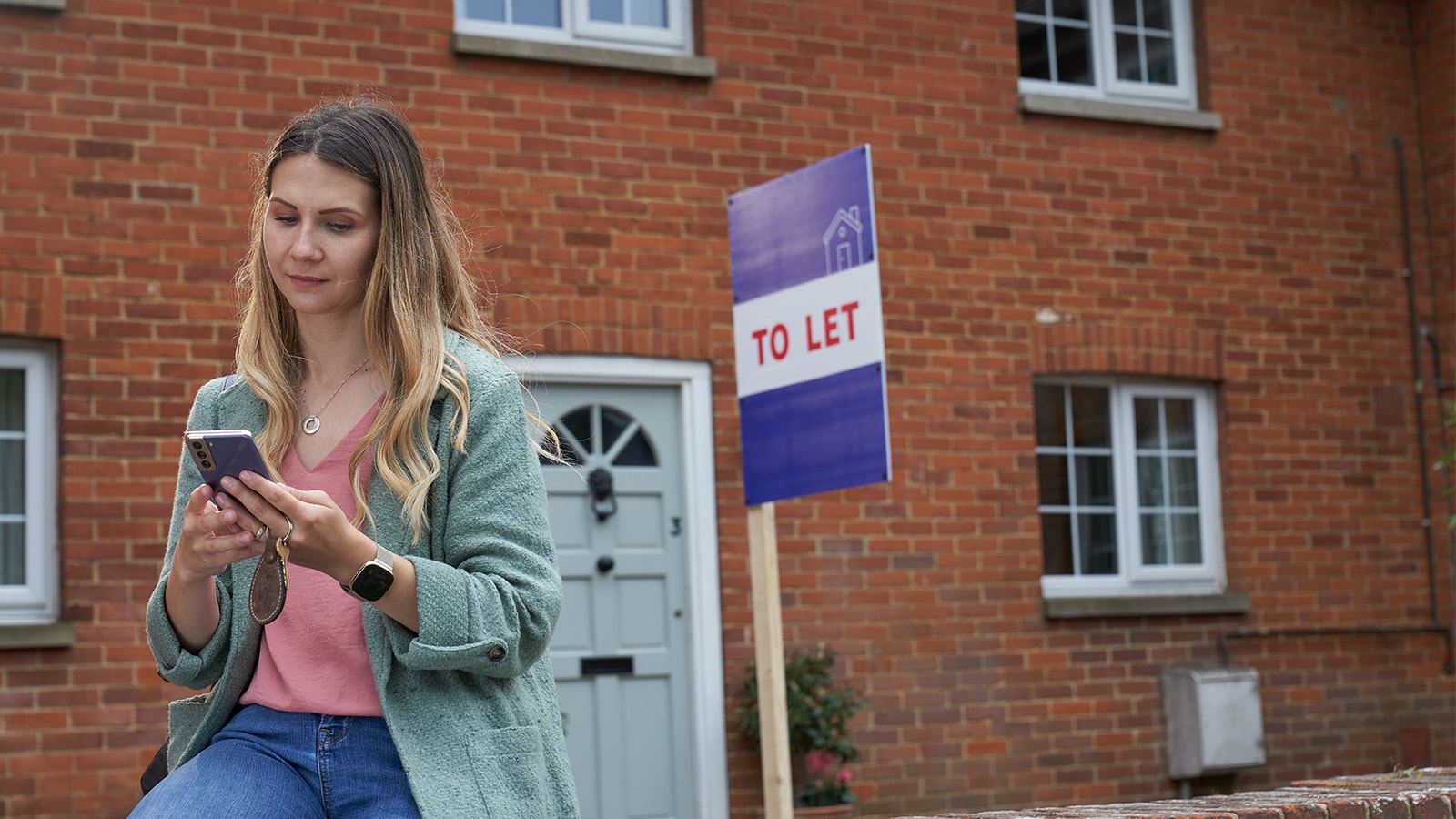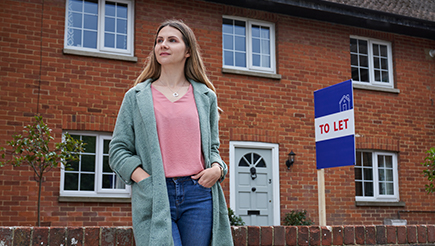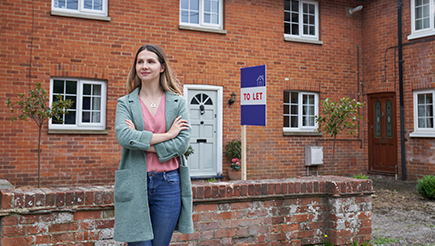What is landlord insurance?
Landlord insurance protects your property in case something happens to your property. This could be damage caused by your tenants, storm damage, theft and more.
Proper checks on any prospective tenants can and precautions against the weather can help, but even then, things can still go wrong. That’s where landlord insurance comes in – to have your back when they do.
What does landlord insurance cover?
Landlord insurance will always include buildings insurance as standard to cover any potential damage to the structure of your property caused circumstances such as fire, flood, or storms. It will also help with the costs associated with repairs.
Property owners’ liability cover is also included as standard and protects you against third-party claims – for example, if someone injures themselves on your property.
Subsidence cover to cover land shifts under your property can cause considerable structural damage, but with this cover (which is a requirement of some mortgages).
You’ll also be covered for:
- Cover to re-house your tenants in alternative accommodation - if your property can’t be accessed or lived in due to damage, and your tenants don’t already have this cover under their own insurance, we’ll look to re-house them in the event of a valid claim.
- Cables and underground pipes cover - we’ll pay you for the costs incurred following damage to pipes or cables, including essential utilities such as electricity, gas, and water. Please note: you policy can be extended to include trace and access to find the fault.
Contents cover is another important part of any landlord insurance policy as this covers any fixtures and fittings that might be covered over the course of a tenancy.
What doesn’t landlord insurance cover?
There are certain things that landlord insurance doesn’t cover as standard. Here are a few of the most common.
Common wear and tear
Wear and tear happens to all things, so if the damage to your property is a result of the natural aging of the building or standard use of the property then you won’t be covered for those type of repairs.
Please note: It is the landlord’s responsibility to maintain the property and to cover the cost of any necessary repairs. Your insurance will only cover repairs following an insurance event such as an extreme weather event or a break in, for example.
Loss of rental income
If your property becomes uninhabitable, due to an event such as a fire or flood, then standard landlord insurance won’t cover you for the rental income you’ll lose.
This is an optional extra you can add to your policy. So, make sure you choose this cover when you’re going through your quote.
Please note: Loss of rental income and rent guarantee are not the same thing. AXA don’t currently cover rent guarantee.
Your tenant’s contents
Your landlord’s insurance will only cover your contents that are supplied to a tenant – such as furniture and appliances – but it doesn’t cover a tenant’s personal contents once they move into your property.
If a tenant requires cover for their own items, they will need to purchase renters and tenants insurance.
Unoccupied buildings (over 45 days)
Landlords must let us know if their property becomes unoccupied. Once your property becomes unoccupied you’ll have 45 days full cover, after which your cover will be reduced and an unoccupancy condition applied.
What is the difference between ‘fixtures and fittings’ and ‘contents’?
Fixtures and fittings covers thing like fitted kitchens, bathrooms, fitted carpets etc
Contents covers the moveable elements in your property, such as furniture, standalone appliances, rugs etc.
What property types does landlord insurance cover?
Landlord policies can cover any of the following property types:
- Bungalow
- House (detached)
- House (semi-detached)
- House (terraced)
- Individual flat
Do you need landlord insurance in the UK?
You’re not legally required to have landlord insurance, but there are risks associated with a rented property that won’t be covered under a home insurance policy. Without landlord insurance, you’ll need to foot the bill for any claims or legal costs out of pocket.
Also, you will need to consider any mortgage requirements. Landlord insurance may be a condition you need to meet in order to acquire a buy-to-let mortgage for your property.
How much does landlord insurance cost?
Landlord insurance costs from £15* a month, though the price you’ll pay for your policy is unique to your property and needs.
The cost of a policy depends on whether you are insuring a house or a flat, whether it is furnished, where your property is located, and what your rebuilding sum insured is.
This figure should be the cost you’d need to completely rebuild your home if it was destroyed, if you don’t provide an accurate figure, you could end up being underinsured.
How to avoid underinsurance
Underinsurance happens when the rebuilding sum you’ve given us isn’t accurate. This can happen for the following reasons:
- Valuing assets incorrectly – i.e., not accounting for inflation, the work you’ve undertaken previously and it’s standard, or not involving a professional
- Excluding the costs of preparing a plot for rebuild – such as debris removal, clean up, surveying etc.
- Not counting labour or material costs
- Not considering the cost of rebuilding an older property to a modern standard of construction
What can affect how much your policy costs?
There are several factors that impact how much your policy can cost. Here are just a few of these factors.
Rebuilding sum insured
The rebuild cost is the amount it would cost to completely rebuild your property if it was destroyed beyond repair. This figure should include not just rebuild and contents, but also debris removal, gardens, labour costs etc.
Optional extras
Whether your policy is only standard cover or includes optional extras. Each optional extra will alter the cost of your policy.
Property details
Various details such as the age, size, and number of rooms. This also applies to the property type, i.e., are you insuring a flat or a house?
Location
Where your property is located - – properties located int certain areas, such as those in higher crime rate or in flood zones.
Claims history
The number and age of any claims you've had in the past, so if you’ve recently made a claim on your landlord insurance then you might find that your premium is higher.
Multiple properties
There is a cost associated with every property you cover, so the more properties you cover with us, the higher your quote will be. You can cover a maximum of 10 properties on one AXA policy.
Frequently asked questions
Time to protect your property?
Property is a huge investment, so don’t let that investment go to waste when something goes wrong. Protect your property today and Future You will thank you.
Not everything can always be done online
There are a few exceptions when it comes to online quotes. This will only affect you if you’re trying to cover:
- More than 10 properties
- A mixed portfolio of commercial and residential properties
- A property outside the United Kingdom
If you do, we’ll need to get some more details from you to make sure we can give you a quote that meets your needs. You can call us now on 0330 159 1522 ◆
Looking for insurance for your commercial property instead? Visit our commercial landlord insurance page.
Our customers say...

Our customers’ reviews, independently moderated and managed by feefo. Based on 0 total reviews.
.
Policy documents
Make sure you have all the information you need before taking out a landlord insurance policy.
Why choose us?
There are lots of reasons to choose AXA Landlord Insurance. Here’s eight for starters.
*10% of our customers paid this or less between October and December 2024.
◆Lines are open Monday to Friday, 8am to 6pm. Excludes bank holidays. Closed Saturday and Sunday.
Terms, conditions, eligibility and exclusions apply. Underwritten by AXA Insurance UK plc.
**Offer ends 05/05/2025. T&Cs apply. Offers apply to new customers and for the first year only. The code applies a 20% discount to the policy when you purchase a policy online. Minimum required premium for cover applies. The discount does not apply to terrorism cover






